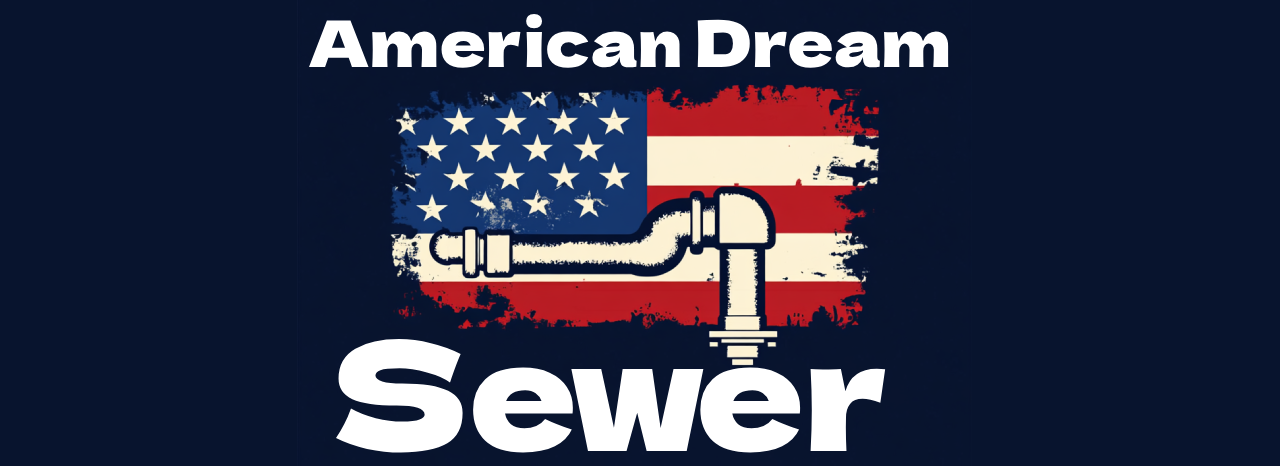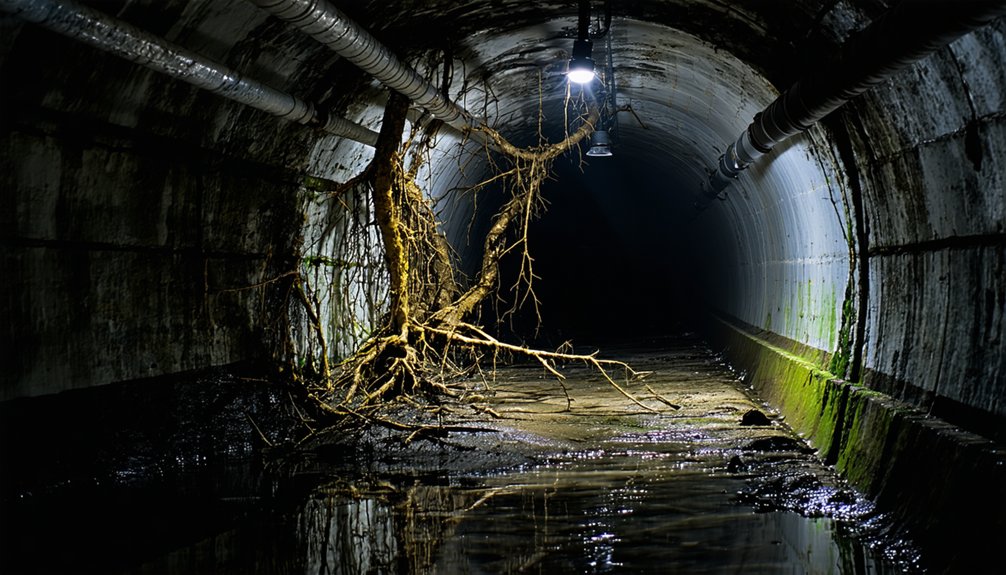Signs that a sewer line needs immediate attention include persistent slow drains, frequent clogs, and unusual sounds like gurgling or bubbling. Unpleasant odors, resembling rotten eggs or sulfur, often indicate sewer gases escaping, posing health risks. Addressing these issues promptly is vital to prevent significant plumbing complications and costly repairs. Homeowners should monitor drainage patterns and consider inspection services to maintain system integrity. Additional insights can further illuminate these essential maintenance practices.
Frequent Clogs and Slow Drains
When homeowners experience frequent clogs and slow drains across multiple fixtures, it often signals a more significant issue within the main sewer line. These recurring slow drains may indicate blockages caused by debris, tree roots, or other obstructions that impede normal wastewater flow. Plumbing experts recommend a professional assessment to identify the source of these issues promptly. Ignoring persistent slow drains can lead to complete blockages, resulting in costly repairs that could have been avoided. Homeowners should be vigilant in monitoring drainage patterns; a sudden decline in drainage efficiency often points to underlying sewer line problems. Additionally, gurgling sounds during drainage episodes are indicative of trapped air, further emphasizing the need for expert intervention. Addressing these symptoms proactively can liberate homeowners from the stress and expenses associated with severe plumbing issues, ensuring a smoothly functioning sewer system. Regular maintenance of sewage pump services can also help in preventing such issues from escalating.
Unpleasant Odors
Persistent unpleasant odors around the property or emanating from drains often signal significant issues within the sewer line. Foul odors, particularly the smell of rotten eggs or sulfur, typically indicate the presence of sewer gases escaping from a breach or leak. These gases not only contribute to an uncomfortable living environment but also pose serious health hazards to occupants. Immediate attention to these unpleasant odors is essential, as they may reveal underlying sewer line problems that require urgent intervention from a professional plumber. Ignoring these signs can lead to exacerbated plumbing problems and costly repairs, further compromising the safety and health of the home. Timely investigation into the source of the odors can prevent more severe issues, ensuring a safe and odor-free environment. Homeowners should prioritize addressing any signs of sewer issues to maintain their well-being and property integrity.
Unusual Sounds From Plumbing
Unusual sounds from plumbing systems, such as gurgling or bubbling, can indicate underlying issues within the sewer line. These noises often signal pressure imbalances caused by blockages that hinder proper drainage. When wastewater struggles to flow freely, trapped air creates gurgling sounds, suggesting an urgent need for assessment. Such unusual sounds may occur sporadically and are typically accompanied by other symptoms like slow drains or foul odors, all pointing towards potential sewer line complications.
Ignoring these warning signs can lead to exacerbated issues, resulting in costly repairs over time. Early intervention upon hearing strange plumbing noises is vital to prevent further damage and maintain the health of the plumbing system. Homeowners should prioritize addressing these unusual sounds to safeguard against more significant sewer line problems and guarantee efficient wastewater management.
Frequently Asked Questions
How Do You Know if Something Is Wrong With Your Sewer Line?
How can one discern if there is a problem with their sewer line? Indicators include persistent sewer smells, slow drains, and frequent clogs. Gurgling sounds from fixtures may suggest trapped air, while water pooling in unexpected areas can signal a leak. Additionally, unusual noises and sewage backup into sinks or toilets are red flags. Tree roots or pipe corrosion could exacerbate these issues, necessitating immediate professional intervention to avert further complications.
Is Sewer Line Damage Covered by Homeowners Insurance?
Homeowners insurance often has limited coverage options for sewer line damage. Many policies exclude repairs related to wear and tear, tree root intrusion, or maintenance neglect, placing the financial burden of repair costs on homeowners. Understanding policy limits and the exclusions list is essential when evaluating damage claims. To enhance protection, homeowners may consider sewer line warranties and familiarize themselves with the filing process for emergency services, ensuring thorough financial preparedness against unexpected issues.
Is a Clogged Sewer Line an Emergency?
A clogged sewer line is indeed an emergency, particularly when it leads to sewage backup or foul odors. Symptoms such as slow drainage, gurgling sounds, and water pooling signal significant plumbing issues that require immediate attention. Neglecting these signs can exacerbate the problem, possibly involving root intrusion or necessitating costly sewer inspections. Prompt emergency plumbing intervention is essential to prevent further damage and guarantee safe living conditions.
How Do I Know if I Need a New Sewer Line?
Sewer line symptoms signal significant issues. Replacement signs may arise from frequent clogs, unpleasant odors, or ground movement. Aging infrastructure, particularly with vulnerable pipe materials, heightens failure risks. Cost factors and inspection methods, such as video camera assessments, guide decisions. DIY checks can identify tree roots or leaks, but professional services often guarantee thorough evaluations. Weighing repair options versus replacement is essential for effective resolution and maintaining a healthy plumbing system.


